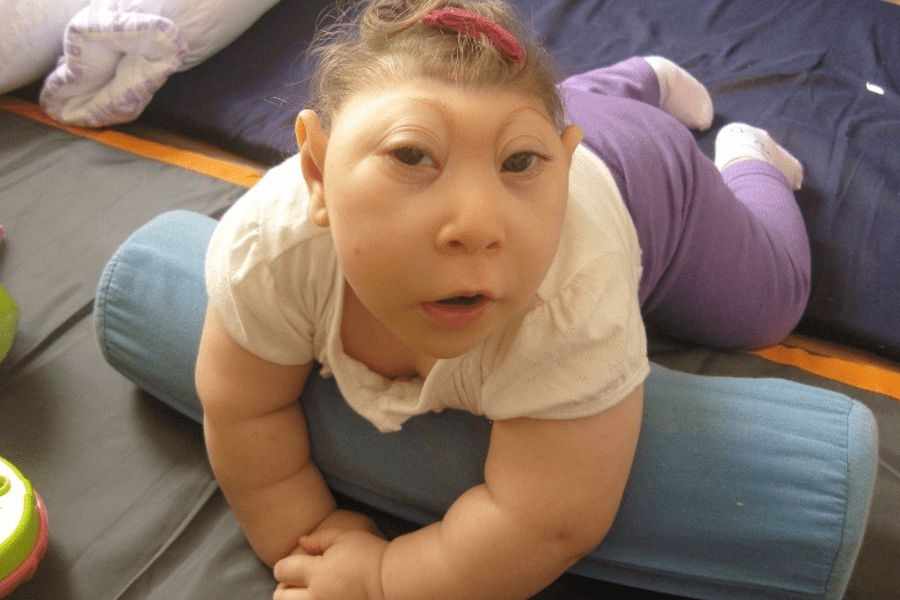Anencephaly
Overview of Anencephaly

Anencephaly is a rare neurological disorder that affects the development of a fetus during pregnancy.
It occurs when the neural tube, responsible for forming the brain and spinal cord, fails to close properly at the head end. As a result, infants with anencephaly are born without a forebrain and cerebrum, which are essential for thinking and coordination.
This means that they are missing significant parts of their brain, skull, and scalp. Anencephaly is a severe condition that is often fatal shortly after birth.
Therefore, it is crucial to understand the causes and risk factors associated with this disorder to prevent and manage it effectively.
Anencephaly Symptoms
Key characteristics and symptoms include:
• Incomplete Brain Development: Anencephaly results in the incomplete formation of the brain, particularly the forebrain responsible for vital functions like cognition, movement, and consciousness.
• Open Skull Defect: Infants may present with a missing or incompletely formed skull portion, exposing brain tissue either visibly or shielded by a thin membrane.
• Facial Abnormalities: Anencephaly can manifest as facial irregularities, including a small or malformed skull, facial clefts, and defects affecting the eyes, nose, or mouth.
• Absence of Cerebral Hemispheres: The condition often entails the absence or severe underdevelopment of cerebral hemispheres, causing profound neurological impairment.
Causes & Risks
• Genetic and Environmental Influences Anencephaly results from a mix of genetic predisposition and environmental factors. While some cases have identifiable genetic elements, most occur spontaneously.
• Folate Deficiency: Not getting enough folic acid, a B vitamin, before and during early pregnancy increases the risk of neural tube defects like anencephaly.
• Other Environmental Contributors: Exposure to certain substances, medications, or chemicals during early pregnancy might contribute to neural tube defects, but the exact triggers are unclear.
• Maternal Health and Nutrition: Conditions such as obesity, diabetes, hyperthermia, and inadequate prenatal care can raise the risk of anencephaly and other neural tube defects in babies.
• Family History: Although most cases are random, having a previous child or family history with neural tube defects increases the chance of another affected pregnancy.
• Race and Ethnicity: Certain ethnic groups have a higher risk of babies with neural tube defects, including anencephaly, though the reasons for these differences are not fully known.
Test & Diagnosis
Anencephaly is typically diagnosed through various prenatal screening methods:
• Prenatal Ultrasound: Conducted during the first or second trimester, it reveals fetal brain and skull abnormalities. Anencephaly is identifiable by the absence of a significant portion of the skull or brain tissue.
• Maternal Blood Tests: Particularly alpha-fetoprotein (AFP) screening, measures proteins indicating neural tube defects. Elevated AFP levels suggest a higher risk of anencephaly.
• Prenatal Genetic Testing: Prenatal genetic testing can detect anencephaly through analyzing fetal DNA using amniocentesis or chorionic villus sampling.
• Fetal MRI: When detailed information about the fetal brain and skull is needed, a fetal MRI is conducted for a more in-depth diagnosis.
• Prenatal Counseling: Healthcare providers offer counseling to explain the diagnosis, discuss severity, and help parents understand their options for the pregnancy.
Treatment
• Anencephaly is a condition without a cure or effective treatment, resulting in the inability of affected infants to survive after birth.
• This fatal condition arises from severe underdevelopment or absence of crucial Brain components necessary for life functions.
• Anencephaly is often detected during pregnancy, prompting families to seek counseling and support to understand its implications.
• Lack of a remedy highlights the need for emotional and informational guidance for families facing anencephaly.
• Providing support helps families navigate the challenges associated with the condition.
• The focus is on assisting families emotionally and providing them with information to cope with the diagnosis of anencephaly.
Living With
Anencephaly is a profound congenital anomaly characterized by the inadequate development of the brain, skull, and scalp during fetal growth.
Regrettably, infants born with anencephaly face an exceedingly short life expectancy, often surviving only for a few hours or days post-birth.
The absence or severe underdevelopment of essential brain components, crucial for sustaining life functions, renders prolonged survival impossible with anencephaly.
The limited viability underscores the challenges and brevity associated with living with this severe birth defect.
Complications
• Anencephaly, a severe birth defect, results in deficient or underdeveloped brain and skull components, posing significant challenges for affected infants' survival and well-being.
• Infants with anencephaly typically have a brief lifespan, lasting only hours to a few days post-birth due to the absence of critical brain structures vital for life functions.
• The condition leads to life-threatening medical complications as deficient brain regions control essential functions like respiration and heart rate.
• Anencephaly increases susceptibility to infections, compromising the infant's immune system and exacerbating medical risks.
• Providing postnatal care for anencephalic infants is challenging due to the absence of crucial brain structures.
• Beyond medical challenges, anencephaly profoundly impacts families emotionally, encompassing distressing diagnoses, limited lifespan, and ensuing grief, imposing significant emotional and psychological strains on parents and family members.

The Content is not intended to be a substitute for professional medical advice, diagnosis, or treatment. Always seek the advice of your physician or other qualified health provider with any questions you may have regarding a medical condition.
Know more about
Our Healthcare Planner
Three fundamental values we can assure you:
1. Personalized Healthcare.
2. Most advanced robotic therapies
3. Transparent pricing





